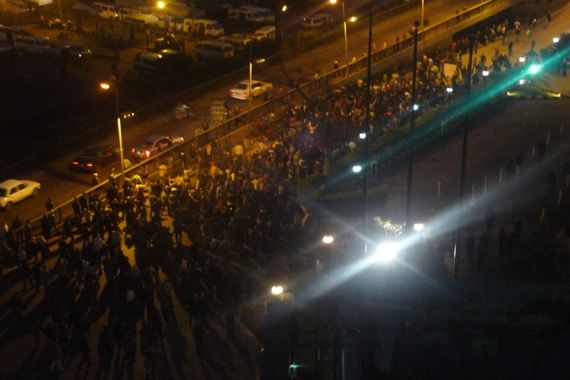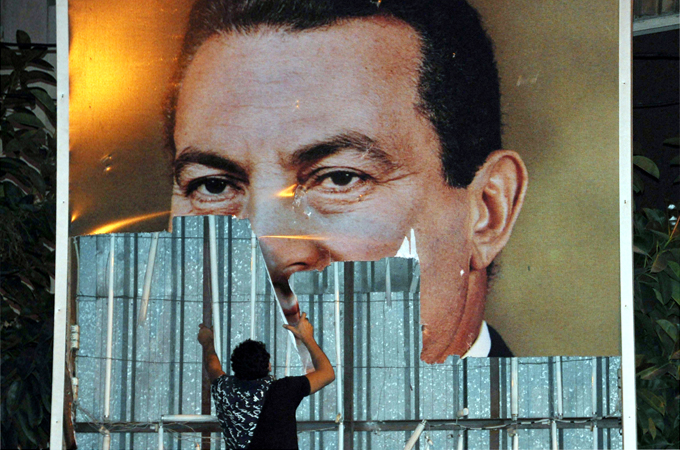Online activism fuels Egypt protest
Online social networks being used by activists to communicate and organise anti-government protests.

 |
| Protesters have been calling for Egypt’s president Hosni Mubarak to step down [EPA] |
Egyptian authorities have blocked internet and mobile services in a bid to quell anti-government protests, but the measures may have come a bit too late.
Activists spread the word online about Friday’s protests, detailing the list of public squares where people should gather.
Calls for action circulated on Twitter and Facebook since early on Friday morning.
Twitter user rassdwda wrote: “#Egypt protests begin from mosques & churches, #Muslims #Christians 2gether#Jan25”.
Another user named eacusa tweeted: “#Jan25 #Egypt Good news, morale in Cairo still high, veteran activists from 60s & 70s r spreading knowledge of predigital ways 2 coordinate.”
In the hours before the internet was unplugged, activists used social media inside the country and relayed their messages using contacts in other countries.
Online activists from Tunisia shared information about how protesters could pour Coca-Cola on their faces as a method of protecting themselves if police use tear gas. Others offered help by submitting emergency numbers for use in case protesters are arrested.
A youth group that calls itself the April 6th Movement distributed 20,000 leaflets late on Thursday outlining a basic blueprint of where to go and what supplies to take. They urged people to distribute the information through emails and in person rather than Facebook and Twitter to avoid government interference.
No revolution, no democracy
Other Twitter users sent messages to boost protesters’ morale, offering tweets of support and solidarity from countries such as Japan and the United States .
Takamit7 wrote: “Without revolution, there is no democracy. Without internet, there is no freedom. We Japanese support you!!?#Egyptian”
Some users offered ideas about how to bypass the government’s technological crackdown by logging on to the internet with proxy servers.
Users outside Egypt urged fellow citizens to write to their politicians to put pressure on the Egyptian government.
Alihabibi1 wrote:”If you are in the #USA, call your congress representatives to unlock internet and phone networks in #Egypt!”
Others living abroad offered to dedicate their account all day to sending messages on behalf of people via the phone like journalist Mona Eltahawy who wrote: “#Egyptians: Friday I I’ll b on #Twitter ALL DAY: if social media blocked write to me eltahawy67@gmail.com and I’ll spread word. #Jan25″.
Eerie Cairo
The very few Egyptians that had some online connection offered an insight into how the streets looked in Cairo. A user named anonymous wrote:”Just had a peek outside the window this Friday morning. Everything looks quiet so far in Tahrir square, I don’t see any police #jan25″.
Others tweeted of an eerie Cairo, though the mood was likely to change after midday prayers. The mood was echoed online: After 12:30 am on Friday morning, when the government shutdown began, Twitter and Facebook became online ghost towns, with the vast majority of users inside Egypt disappearing.
Even Al Jazeera correspondent Ayman Mohyeldin wrote minutes before the total blockade: “Internet service down across #egypt #jan25. Will be tweeting on Friday by alternative means.”
Others expressed their disappointment. Mona Eltahawy wrote:”Friday Jan 28 historical day in #Egypt: #Mubarak dictator of 3 decades shuts down internet bec scared of youth-organized protests #Jan25.”